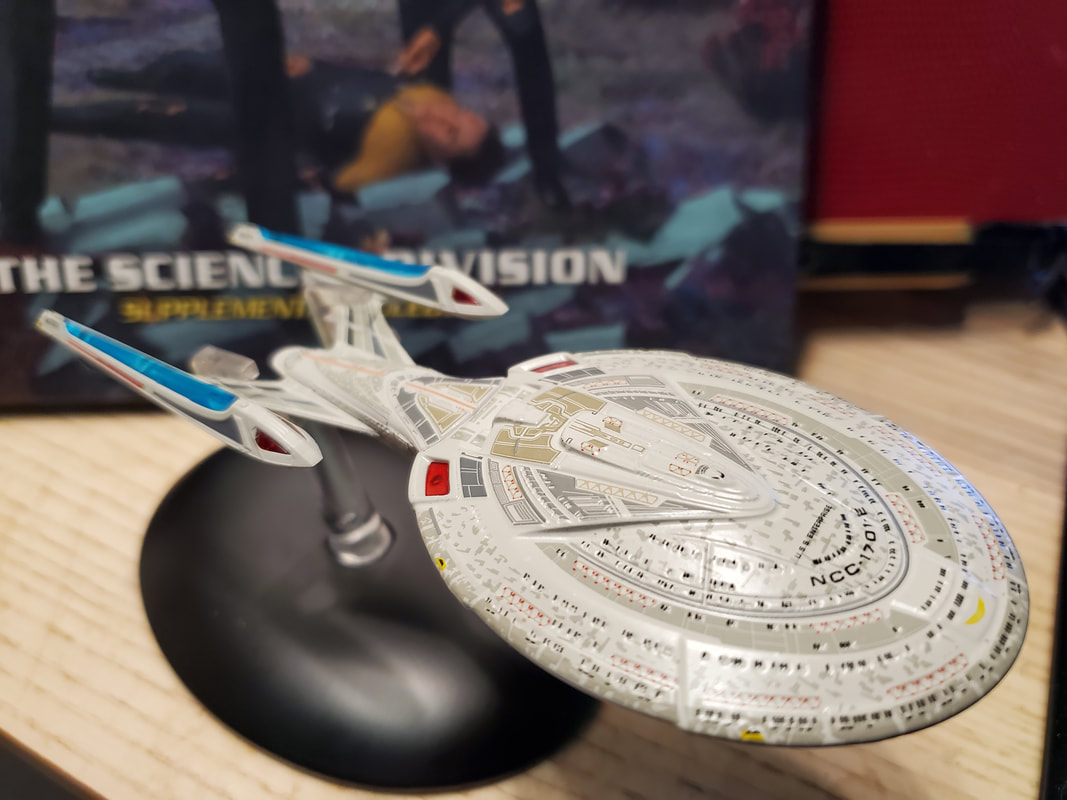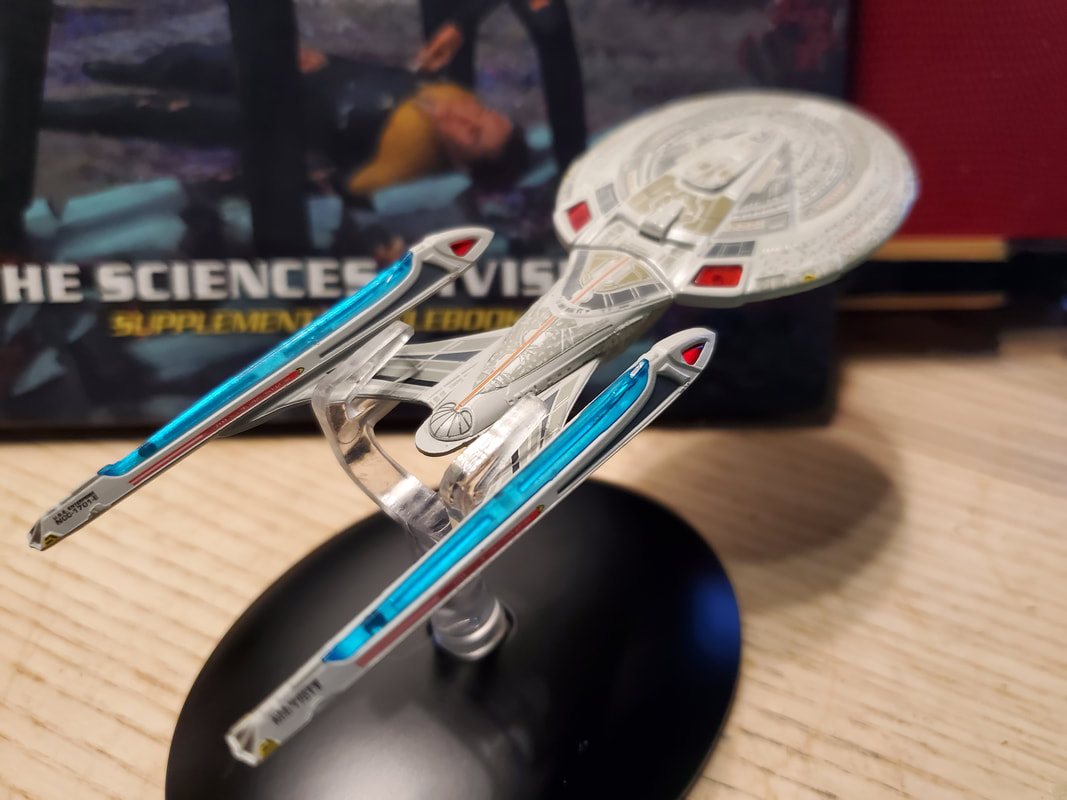|
I am still quite new to tabletop roleplaying games, it hasn't been two years yet since I ended up getting involved, so I will be the first to say I have very little experience. Gameplay itself is where that's most obvious, especially combat, I feel like I have to ask for rule clarification several times a session, but unlike remembering various rulesets the roleplaying aspect didn't feel that new. I realized that's because I was drawing parallels between it and something I have been involved with for a longer time, theatre.
Now there are some obvious differences, notably roleplaying isn't generally scripted so unless you do improv, theatre may not seem directly related. Theatre is aimed at presenting what you're doing to an audience and while roleplaying can include having an audience, if you record your sessions or even just have observers at your table, that's not the inherent purpose of roleplaying games and is often not going to be the case. Still I've noticed a few key things I was taught while involved in community theatre that I think are also useful for anyone looking to improve their roleplaying or looking to better support the roleplaying of others at the table (and don't worry, none of them are "you must get involved with local theatre.") You don't have to be an actor to be a roleplayer of course, but there are some things that are helpful to keep in mind for both!(edited) 1. Be Present in the Scene (and participate, to an appropriate degree) Whether you're an actor or a roleplayer there are going to be some scenes that aren't about you. Maybe you're an ensemble member milling about as part of a crowd while the leads do something plot important, or maybe your party member is finally getting to confront the mysterious figure from their past that features heavily in their backstory. It's not your scene, but if you are onstage or your character is there for that you're still a part of the scene. You're not the focus of attention, but that doesn't mean it's ok to check out and stare at the wall or your phone until it's your turn to do something. When you're not the focus it's still important to pay attention to what's happening and how you respond to it. Too much or not enough reaction can make things difficult for the person who is at the center of the scene. The leads onstage are probably going to have trouble staying in character if the ensemble starts stealing the scene with over the top reactions or attempts to pull focus, but if the ensemble just stand doing nothing waiting for their cue to do something that's going make it hard too. Support whoever's the focus of the scene by being present and engaged. Participating in the scene while still letting them have the spotlight shows you care about the effort they're putting in and care about their character's story. Match their tone, if their character is distraught about something and they're roleplaying that then it's probably not the best time for that great joke you just heard. 2. Be Flexible (stuff happens, go with it) Now non improvisational theatre is scripted but that doesn't mean everything goes according to plan. Cues are missed, lines are dropped, someone breaks a prop, lights or microphones have issues, someone falls into the orchestra pit, the possibilities for disaster are endless. However no matter what happens, the show must of course go on. If you know anyone who's done theatre I'm sure they'd love to tell you about the best mangled line they've ever heard, or the time some guy grabbed the wrong prop and had to get through his scene trying to dramatically threaten someone with a rubber chicken instead of a sword, or when someone's mic didn't get turned off before they headed to the bathroom, and how whatever went wrong everyone on stage had to act like this was how everything was supposed to go. Every production has stories. And while things can't of course go off script for non scripted roleplaying, the principle of just going along with things that didn't go how you thought they would is useful for roleplaying as well. Maybe what you planned as a stealth mission devolved into chaos when someone failed their stealth roll. Maybe the party split up and some of them have run into trouble that the rest don't know about. Maybe everyone agreed on a plan but now that's it's time to enact it someone's decided to go off book. Things are going to go wrong and I think for most of us the first instinctual response to things going wrong is wanting to fix it. When you're roleplaying though, you can miss a lot of good story if you focus too much on everything going right. Things going wrong is interesting, and gives you a lot to think about in terms of how your character would react to the situation. I also feel it's very easy to slip into meta when you get into problem solving mode, I've definitely experienced having things go wrong and then someone going "hold on, out of character for a second here's what we should do about this" or trying to take back an action that caused whatever trouble has ensued. You don't need to go looking for chaos or drama to have a good story or develop your character well, but rolling with it when it happens and dealing with it in character is something I definitely recommend. 3. Be Respectful I mean that sounds obvious I'm sure, and more like just sound advice for life in general, but more specifically be respectful of how other people are taking a risk and putting themselves out there. Some people find acting or roleplaying more nerve wracking then others. Even if you're sitting in your living room with a few friends instead of standing on stage in front of an audience it can be hard trying to portray a character, and if you're giving it your all but other people aren't respectful of that it can be very disheartening and might discourage you from trying again. Now the extent to which this applies to roleplaying depends both on the tone of the game and how well you know the player. Your friend doing a silly character voice in a lighthearted game probably won't care that much if you jokingly give them a hard time about it, but someone trying to seriously roleplay a vulnerable moment or one addressing a sensitive topic isn't likely to appreciate the same response. If you don't know a player well you won't necessarily know how difficult it is for them to play a character in front of other people so it's best to err on the side of caution. Basically if you want the theatre summary, even people who love acting get stage fright and that's ok, you're all in this together so be supportive! Now these are just some things I've drawn parallels with personally, and of course probably apply more to trying to roleplay with a more serious tone and focusing more on story than mechanics (which to be fair is pretty much the only experience I have to draw on there) but they are ultimately pretty basic principles I think could apply to any game! And while you don't of course need to roleplay to be an actor or be an actor to roleplay, if you're involved with one and interested in the other I really do recommend trying it out! There's a lot you can learn from one that will apply to the other, and aside from that they're both great activities to have fun and form a community!
1 Comment
Coming in at 685 meters long and 24 decks. The Sovereign class was one of the first new Starfleet vessels to be more of a warship than exploration. With 12 Phaser banks which would remodulat and 5 Torpedo launchers which fired the new Quantum Torpedo's. The new Enterprise was designed to fight the Borg. It would get a refit and get even more weapons.
The computer systems were some of the most complex in the Federation. Utilizing bio-neural circuitry. It was also different than earlier Enterprise Galaxy class in that this vessel carried no civilian families. Starfleet had finally come to their senses and realized that a Starfleet vessel was not a liner. The model is really nice. The detail on these models is always good but this one really stands out. Its crisp, and sharp and the nacelles have a clear but really nice blue incorporated into it. It feels pretty sturdy but the one tricky part is the stand. It does hold the ship but the ship slides in at the nacelle struts and its not a lot for the stand to grab hold of. So be a bit careful there. |
CrewGrand Master Aaron, Adam, Chris, Cieran, Emily, Eva, Rebecca. Dream team extraordinaire. Archives
July 2024
Kritfayle Copyright 2022
|
Kritfayle
Copyright 2024
Copyright 2024


